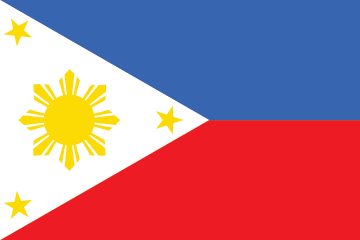
Compulsory Education Age
6–12 years old
Estimated Number of Homeschoolers
Unknown
Legal Status
Homeschooling is legal in the Philippines – there is a memorandum since 1997 and another revised memorandum in 2022.
Even before the pandemic the Department of Education had been studying or has implemented alternative ways to educate learners. They have a program called Alternative Delivery Mode under formal education which they implement for certain learner situations, depending on the situation they adjust and adapt different modalities.
There are 8 modalities under this program and homeschooling is one of them.
The Philippines Constitution, Article XIV, Section 1(2) states that the country will “Establish and maintain, a system of free public education in the elementary and high school levels. Without limiting the natural right of parents to rear their children…” Under the last phrase, “Without limiting the natural right of parents to rear their children,” religious groups, mission boards, and families can branch off from public education to create their own private education. However, the Constitution also provides under Section 4 (1) that “the State recognizes the complementary roles of public and private institutions in the education system and shall exercise reasonable supervision and regulation of all education institutions.” Further, the Department of Education (DepEd) Memo no. 216 s. 1997 entitled “Home Education Program” states that if a homeschooled student wants to transfer into a conventional school, he or she must first be accredited by the Department of Education.
Home Study Programs are implemented by interested divisions of the Department of Education in consonance with the 1987 Constitution (Article XV) which provides that quality education at all levels is made accessible to all Filipinos and that non-formal and indigenous learning systems, as well as self-learning and out-of-school study programs, particularly those that respond to community needs be developed.
A new memorandum was released on January 21, 2021. ---- LINK TO MEMO that implemented new policies and guidelines will be stricter and more regulated for the schools, but more flexible to families because now they have the option to choose “homeschooling” provided they comply with the requirements. ---- WHAT REQUIREMENTS
The new memorandum’s policies and guidelines are yet to define if the Philippines is really embracing homeschooling or making it more difficult for families to choose to homeschool as it becomes more regulated.
Contact Information
Homeschool Global
Website: www.homeschoolglobal.com
Location: Barangay Ugong, Pasig City, Philippines 1604 2nd Floor,
Ayala Malls The 30th, Meralco Avenue
Email: info@homeschoolglobal.com
Phone: (+632) 234 04 32
Instagram: @homeschoolglobal
Facebook: Homeschool Global
Contact: Edric Mendoza
HAPI (Homeschool Association of the Philippines Islands)
Website: www.hapi.ph
Facebook: www.facebook.com/wearehapi

